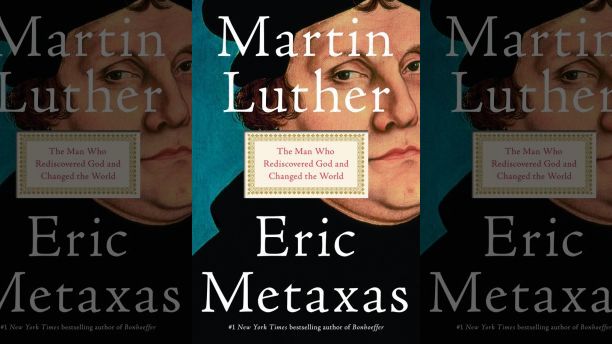Apologies in advance for this blog post – it is almost six
months too late. The 500th
anniversary of Martin Luther’s posting of his 95 Theses was celebrated on
October 31, 2017. Unfortunately it took
me until yesterday to finish Eric Metaxas’ magnificent biography of Martin
Luther entitled Martin Luther: The
Man who Rediscovered God and Changed the World.
Metaxas is well known for his biographies of Christian
historical figures. I heartily enjoyed
his books on William Wilberforce and Dietrich Bonhoeffer, as well as his
collection of short biographies entitled 7 Men and the Secret of their Greatness. He brings the same eye to detail and witty
writing style to bear on the life of Martin Luther.
Most people alive today have heard of Martin Luther,
although in my experience they are much more likely to confuse him with Martin
Luther King than to really know what Luther was about and what he
achieved. Metaxas sets out to paint a
portrait of Luther, an honest portrait, one that displays both his fine
features and his warts, one the seeks to clarify and rectify Luther legend and
one that does not shy away from the difficult issues in Luther’s life.
The book is structured like many other biographies are. Metaxas sets the scene by describing the
world Martin Luther was born into. It is
a world where Catholicism ruled; a Catholicism that was still medieval in
nature and had begun to rot from the inside.
He traces Luther’s life journey, how he became a monk, and more
importantly how rediscovered the truth of the gospel of Jesus Christ through
his study of the Word of God. Many
stories are attached to these days, and Metaxas seeks to discern what is true
and what is myth.
The events of Luther’s life and the results of his study
lead him to post 95 Theses or articles for discussion on the door of the Castle
Church in Wittenberg. Luther had no desire
at first to start his own church or split from the Catholic Church. Rather, he saw some issues in the church,
especially with regards to indulgences (the purchasing of forgiveness and
freedom from purgatory), that did not line up with his study of the Word of
God. Luther’s simple act of protest
against these practices set the Protestant Reformation in motion.
Metaxas does a wonderful job of portraying Luther’s struggle
at the beginning of the Reformation. He
gives light to the pressures and troubles that assailed him, both spiritual as
well as the very earthy ones. (It is a
rare biography that has a section on the subject’s struggles with constipation….)
His chapters on Luther’s debate in
Leipzig, the Diet of Worms and his time ensconced at Wartburg castle were
especially well done. I also thought his
discussion of Luther’s view of marriage, how it changed and the joy he found
with his wife and family were also excellently researched and written. Metaxas does not shy away from the difficult
– he even discusses Luther’s virulent writing against the Jews in the final
years of his life. While he does not
have an answer for this curious and in many ways out of character pamphlet, I
give the author credit for not avoiding the topic.
The book ends with a wonderful reminder of the impact Luther
still continues to have in our day. His
writings strongly influenced the democracy we enjoy today. Congregational singing and lay involvement in
church, even in the Catholic Church, happened because of Luther. Most of all, Luther opened the door to
plurality – of ideas and even expression of faith. While in our modern world, plurality has
become a god unto itself in some cases, the fact that we can worship in freedom
and embrace truth that is not forced upon us is a result of the legacy of the
man Martin Luther.

No comments:
Post a Comment